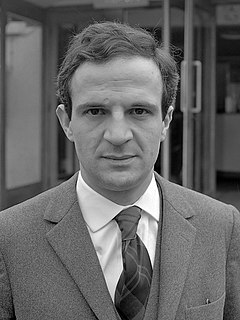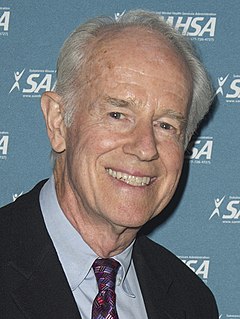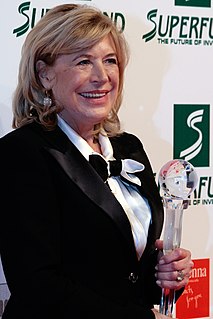A Quote by Francois Truffaut
Related Quotes
Over the years, my marks on paper have landed me in all sorts of courts and controversies - I have been comprehensively labelled; anti-this and anti-that, anti-social, anti-football, anti-woman, anti-gay, anti-Semitic, anti-science, anti-republican, anti-American, anti-Australian - to recall just an armful of the antis.
The Road To Serfdom was written during WWII, and basically it's an anti-Nazi, anti-communist thing, but also it's an anti-Conservative and anti-Labor-party thing aimed at the British. He was an Austrian, writing in Britain. And I feel like now, I guess, everybody pays lip service to libertarian - and, indeed, many conservative - ideas, and yet they keep moving forward with an increasingly bureaucratic state. It shows itself in all sorts of little ways.
When I got lucky enough to be successful as an actor, and I got involved in the anti-war stuff and gay rights movement, there was always this thing eating at me about the death penalty, because that was, to me, the bottom line. That was the anti-life - by definition - position, and I didn't understand why we did it.
When he emerged Lou Dobbs the populist, he was so hard to peg. A mishmash of contradictions: anti-outsourcing, anti-globalization, pro-international-trade, pro-free-enterprise, anti-corporatism, pro-choice, pro-Second Amendment, pro-gay-marriage, pro-gays-serving-openly-in-the-military, pro-military, anti-war-in-Iraq-and-Afghanistan.
A war film can be propaganda and they're very valuable as propaganda, as we realized in Britain in the Second World War. Film as propaganda is a very valuable tool. It can also demonize, which is the dangerous side of a war film as propaganda. But there are war films that are not propaganda. It's just saying 'This is what it's like.' For 99 percent of us we don't know what it's like. We have no idea. So to reveal that to the audience is powerful.






































